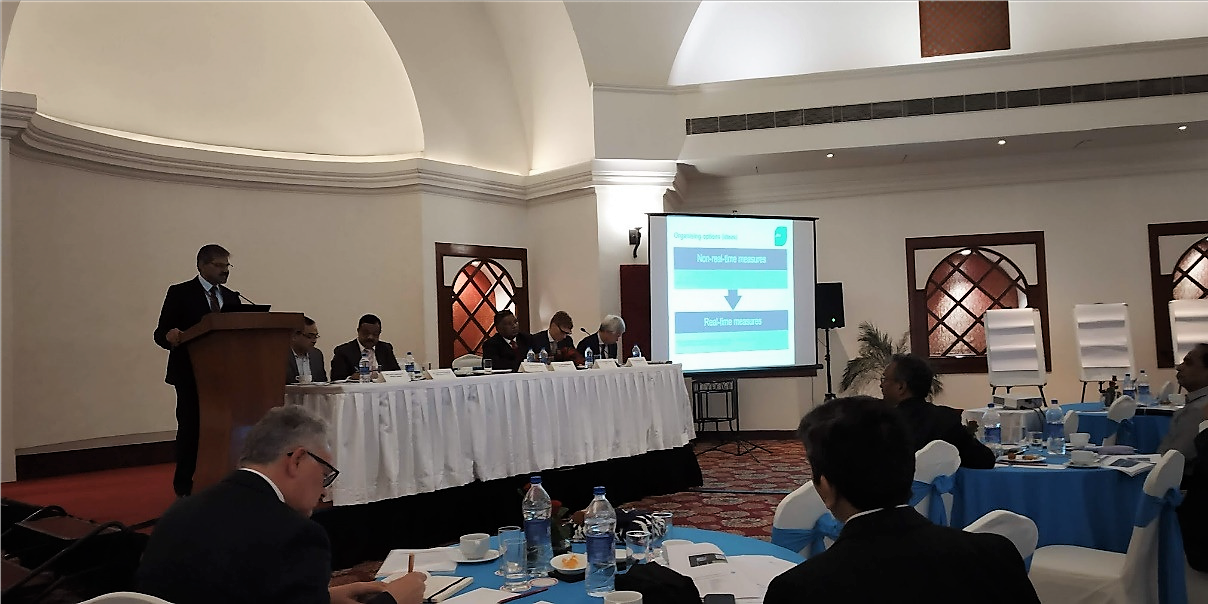India is vulnerable to a wide range of natural hazards, particularly flooding, cyclones, drought, extreme heat waves, landslides, wildfire, and earthquakes. Studies show that, due to increasing intensity and frequency of natural disasters due to factors such as climate change, impacts from weather-related shocks are likely to increase in the country.
Recognizing this growing risk, the Government of India (GoI) has taken significant steps to advance disaster risk management (DRM) and improve its climate resilience. The Japan-World Bank Program for Mainstreaming Disaster Risk Management in Developing Countries (Tokyo DRM Hub) is supporting its efforts with technical assistance to help strengthen resilience across the country to improve risk information and early warning systems; strengthen institutional capacities and policies at National and State levels; and enhance the design, planning, and management of infrastructure assets and services.
One important area of support is that of increasing disaster resilience of the Indian railways, by providing technical assistance to the US $2.115 billion World Bank-financed Eastern Dedicated Freight Corridor (EDFC) project. The Tokyo DRM Hub supported technical assistance activities that assessed the resilience of existing Indian rail infrastructure and practices against temperature variation, floods, and fog. It also reviewed international best practice and made strategic recommendations for strengthening early warning systems, operational emergency preparedness, and weather hazard resilience across the 1193 km of the EDFC are from Ludhiana through Khurja (near Delhi) to Mughal Sarai.

A speaker addresses the participants at a workshop to enhance resilience measures in the Eastern Dedicated Freight Corridor in India. Source: JBA Consulting
As part of this engagement, the Tokyo DRM Hub held a stakeholder consultation workshop in New Delhi in November 2018 to discuss the main findings of the study, as well as ideas for future weather hazard resilience measures that could be integrated in railway operations under the EDFC. 36 representatives attended the workshop, including people from Dedicated Freight Corridor Corporation of India Limited (DFCCIL), Indian Railways (IR), Research Designs and Standards Organization (Indian Railways) (RDSO), Northern Central Railway, Northern Railway, Indian Meteorological Department (IMD), Central Water Commission (CWC), National Research Institute for Earth Science and Disaster Resilience (Japan), JBA Consulting, SECON, and the World Bank. This workshop played a key role in validating the initial findings of the report, defining options for managing disaster and climate risks to the EDFC, and enabling dialogue on DRM across institutional actors and international experts.
To contribute to this effort, the Tokyo DRM Hub identified and deployed Mr. Makoto Shimamura, Director General of the National Research Institute for Earth Science and Disaster Resilience, as an expert to India to present how Japanese best practices in strengthening railway infrastructure resilience could be applied to the EDFC. Mr. Shimamura provided insight on how Japanese railways are addressing disaster risks throughout the life cycle of infrastructure assets, including improvements to inspection procedures, asset protection, repair, and replacement processes, and the establishment of countermeasures at the operational and regulatory level. His presentation highlighted key efforts to set rainfall regulations for guiding decision-making processes to manage rail services and reduce disaster risks during extreme weather events.
The GoI greatly appreciated the recommendations of the Strengthening Climate Resilience of EDFC report, and presented them as key inputs during the Resilience of Ports, Railways & Freight Corridors session of the 2nd International Workshop on Resilient Infrastructure in March 2019 in New Delhi. The report is now playing a foundational role in guiding GoI investment decisions to increase disaster and climate resilience under the EDFC.
